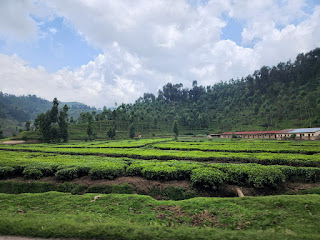When I mentioned to people that I was visiting Rwanda, I'd instantly be met with puzzled or concerned looks on their faces that I was about to step in a warzone or a place of untold misery due to the events that happened in the 1990s, and most popularised by movies like Hotel Rwanda.
Indeed in 1994, Rwanda underwent some of the most brutal violence in human history - the Rwandan genocide took place between Hutus and Tutsis that claimed somewhere between 500,000 to 1 million lives and with 250,000 to 500,000 women raped, ended by Paul Kagame, who has been the President since.
According to local accounts, 80% of all Rwandans lost someone in their family, and 70% witnessed it with their own eyes. This was a deeply personal genocide - your neighbour would be your good friend today and your executioner by machete tomorrow.
It is hard to believe that a country could recover from that.
27 years later, Rwanda is a shining beacon of hope in Africa and one of the fastest growing economies in the world, albeit starting virtually from zero.
The Kagame regime had maintained an iron grip while building fundamental institutions to ensure that Rwanda had a much brighter future than its traumatic past. Today it is known for being exceptionally clean, both physically, and ethically - single use plastic is banned nationwide, and it is one of the least corrupt countries in Africa.
The government has placed emphasis on health and education, having achieved nearly universal vaccination of girls against HPV, a strong emphasis on primary / community health, and the establishment of strong STEM institutions including the Africa campus of Carnegie Mellon University.
The country itself has a nearly perfect climate, being located at a high altitude and on the equator. The land is hilly, blessed with rich soil and water, and as such is full of lush vegetation, of which coffee, tea and plantains, are most notable crops. The food was very fresh and delicious - my two favourites were the Rwandan "national dish" of brochettes (grilled meat skewers) and the tree tomato (or tamarillo), rich in lycopene, but native to South America, not Rwanda.
I'm probably one of the few visitors who didn't take the opportunity to visit the mountain gorillas - unfortunately, this trip was not for vacation, but I did have the opportunity to visit around Kigali, a few rural villages, and Lake Kivu.
Overall, I am very optimistic about the future of Rwanda and enjoyed learning about the country, and meeting many of the wonderful people trying to build a better future.
Like my prior post, I had a lot of help planning this trip and I'm indebted to both Paul and Jean for making this happen - thank you.


































No comments:
Post a Comment